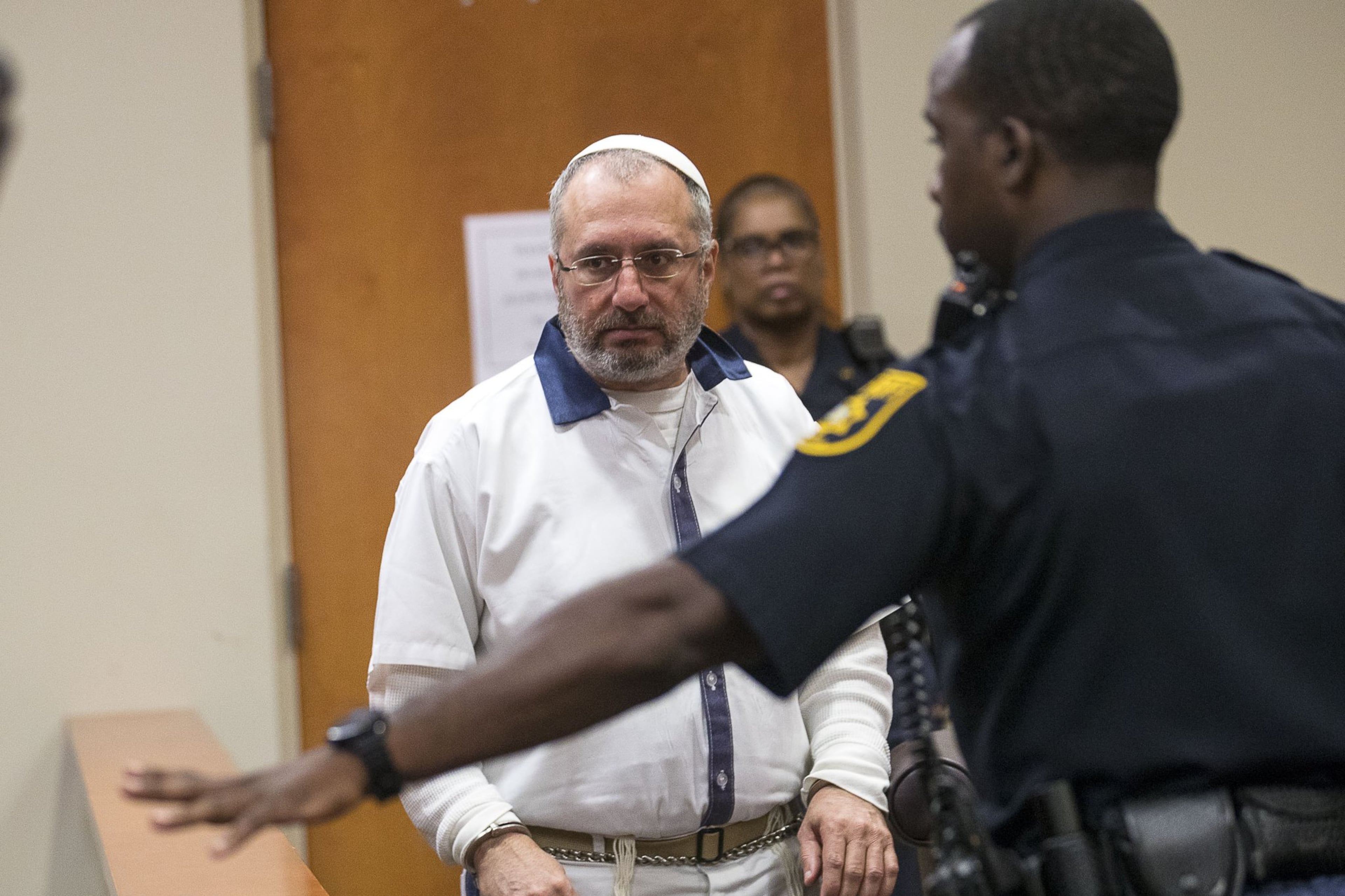Convicted Dunwoody day care killer Hemy Neuman seeks new trial — again

The Orthodox-inspired beard has been trimmed. He’s a little heavier now and a bit more gray.
On Tuesday, Hemy Neuman returned to a familiar setting: Courtroom 5-D of the DeKalb County Courthouse.
The defendant in one of the most sensational trials in metro Atlanta’s history, Neuman has faced judgment in the courtroom twice before, and both times he was sentenced to life in prison without parole for fatally shooting Dunwoody entrepreneur Rusty Sneiderman.
He was back in court for a hearing on his motion seeking yet another new trial, in hopes his defense — that he was driven by delusions caused by mental illness, and an intense love for his victim’s wife — would find more sympathetic ears on a third listen.
RELATED:
Hemy Neuman gets life without parole in Dunwoody day care murder retrial
Sneiderman saga resumes as court overturns conviction
“He’s got nothing to lose,” said Atlanta attorney Esther Panitch, who represented both Neuman’s wife and Sneiderman’s immediate relatives in separate civil matters.
“The last jury said he was guilty as guilty could be.”
Though it’s been nine years since Rusty Sneiderman was gunned down outside a Dunwoody day care facility, interest in the case remains high. It’s been the subject of several podcasts, and even Tuesday’s routine hearing attracted media coverage. But the usual throng had thinned, and those present were there as much for the memory than for the latest motion.

Neuman, a former GE Energy executive, flashed a shy smile on Tuesday as he recognized faces from trials past. But there were no family members, or alleged former lovers, observing the proceedings this time around.
Andrea Sneiderman, once accused of helping her paramour kill her husband, is out of prison after serving 10 months of a 5-year sentence. Murder charges against her were dropped. Instead, she was found guilty of perjury and hindering the apprehension of a killer.

The divorced father of three children, estranged from his family, now calls the Augusta State Medical Prison his home. Even if he’s granted a new trial, a not guilty verdict seems highly unlikely, considering Neuman admitted to killing Sneiderman.
Neuman was found guilty but mentally ill in the first trial; guilty in the 2016 sequel.
“That guilty verdict shouldn’t have been made available to the jury at all,” said Michael Tarleton, one of Neuman’s two new court-appointed attorneys. “The fact that a previous jury found him guilty but mentally ill acts as an acquittal of a completely guilty verdict.”
Double jeopardy, said Tarleton, precludes a straight guilty verdict.
Defense co-counsel Veronica O’Grady said the court prejudiced the jury by allowing prosecutors to introduce into evidence a phone conversation between Neuman and his sister.
In it, Neuman expressed hope that, if successful in his second trial, he would be released from prison in a few months.
That was never going to happen, O’Grady argued, and only served to cause jurors to wonder if Neuman was feigning his mental illness.
Besides, the only thing that mattered was “the mental state at the time of the crime,” O’Grady said.

Prosecutor Anna Cross said the jail call revealed “an incentive to malinger.”
“It mattered that the defendant believed he’d get better treatment if he was found guilty but mentally ill,” Cross said. “He was trying to find his best way out. It was designed to show the jury what he thought would happen to him.”


